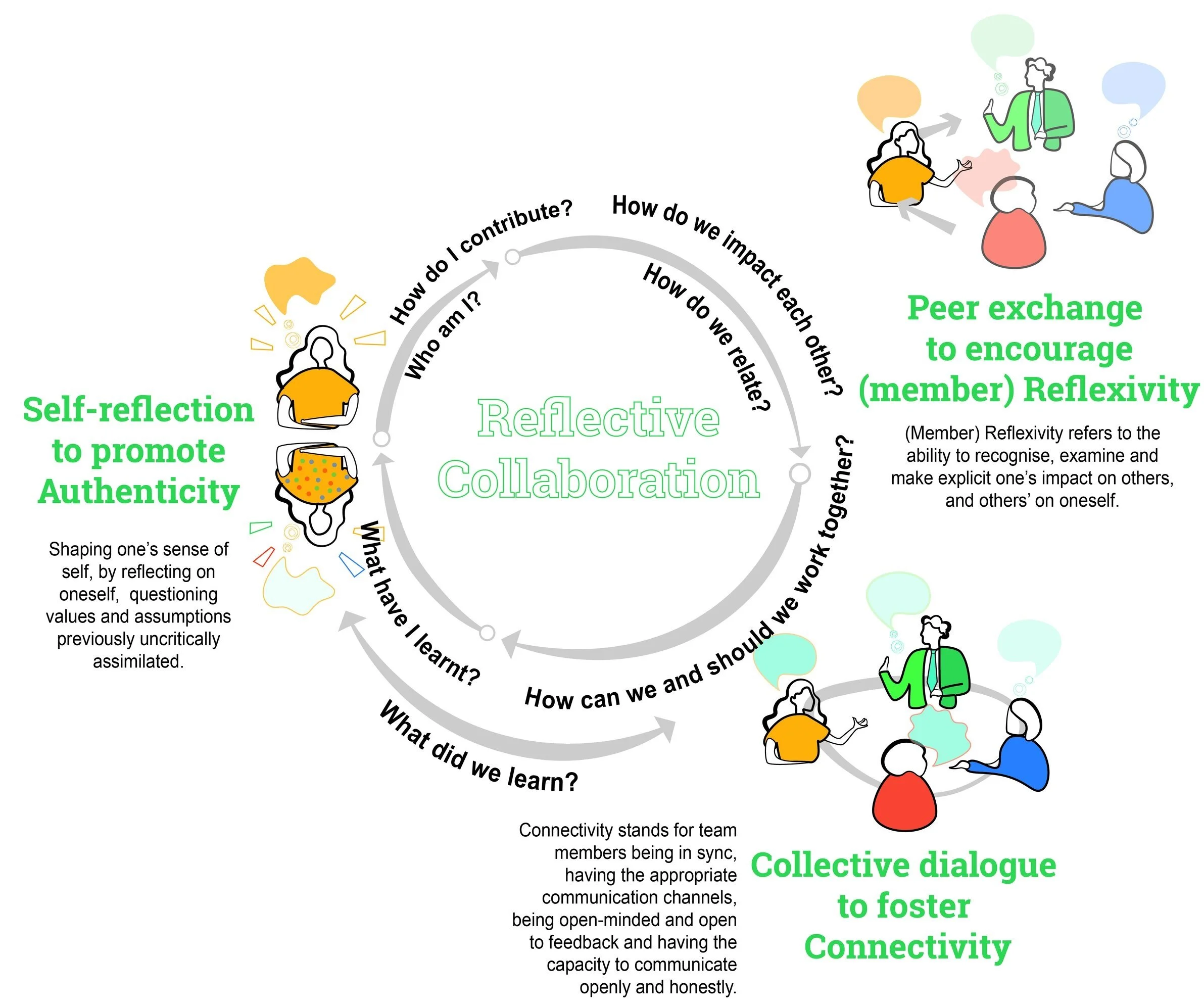Collaborative Learning
Educational Strategy, Advice and Interventions
People Involved
Collaborators included the Study Climate team, educational teams, staff and students across eight faculties at TU Delft
Place and Time
2023-2025
Delft University of Technology, Delft
Context
A student council-funded project to foster student & educator communities for peers to learn together, and from each other.
Collaborative Learning (CL) is an essential personal and academic skill for students, researchers, and professionals. And, it affects student wellbeing, motivation, critical thinking, cognitive performance, and self-efficacy. Collaboration is rapidly becoming an important professional skill and a relevant sustainability skill to address complex global challenges. It can also cater to an inclusive mindset and understanding for others in increasingly diverse landscapes.
Given its many advantages and value teamwork and collaboration are abundantly present and expected within the curriculum. Carried out in a variety of forms, ranging from project-based courses to interdisciplinary and joint programmes. Though it is not without challenges.
Students and oftentimes educators may prefer to work by themselves, especially in case of conflict-ridden interactions, adding to the workload, rather than adding value to the work.
Despite several collaborative learning opportunities included in the curriculum, experiences in the classroom are often challenging and time-consuming.
Students and oftentimes educators may prefer to work by themselves, especially in case of conflict-ridden interactions, adding to the workload, rather than adding value to the work.
These point towards a gap in the development of collaborative skills, such as communication, handling conflicts, or managing team dynamics, etc.
“Differences in culture, pre-existing knowledge, and speed of comprehension can be vulnerable aspects within groups. And often lead to conflicts.”
“Students often breakup the assignment into parts and then briefly integrate prior to submission. The work then is not or hardly discussed or reviewed as a team.”
“Conflict ridden groupwork can not only negatively impact learning and project outcomes; it can severely affect student wellbeing, motivation for participation and learning. ”
Engaging in meaningful collaboration for learning requires skills for dialogue and reflection with others. A need for guidance and support was identified especially when it comes to engaging meaningfully in diverse groups.
Reflective Collaboration Model:
To foster a reflective and dialogic approach towards collaborative learning, we (Aggarwal & Barry, 2025) developed a framework to support inclusive and effective collaborative learning.
It defines three key areas: self-reflection for authenticity, reflexivity in relation to others, and collective dialogue to foster connectivity. The model serves as a practical framework for posing reflective questions to guide discussions and scaffold collaborative learning in HEE contexts.
Read the publication soon!
Approach to facilitate Reflective Collaboration:
Alongside the strategy and model, an approach to support reflective and inclusive collaborative learning was defined for educators to appropriately incorporate it in the curriculum. This included three essentials:
Ensure a good start: Getting to know each other, building trust, and team.
Regular moments of reflection for improvement: Regular tracking and collective reflection can enable managing or improving team dynamics and collaborative outcomes.
Role of a facilitator and mediator: A facilitator/ mediator can create safe spaces and provide prompts for appropriate sharing and exchange.
Read more about the approach in the manifesto soon!
Educational advice to shape and implement collaborative learning within curriculum
Connecting Communities: University Wide Study Climate Event
Collaborative Learning: Community of Practice Sessions
Intersectionality in Higher Engineering Education: University-wide workshop
Reflective Collaboration Educator Support






